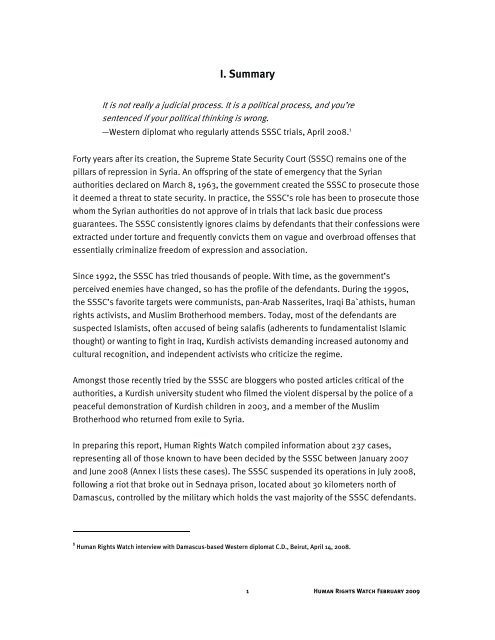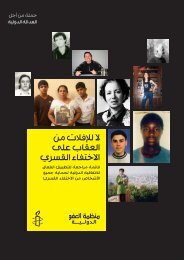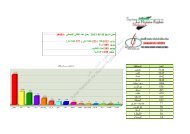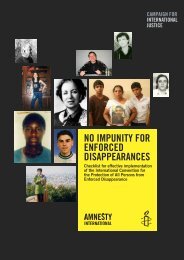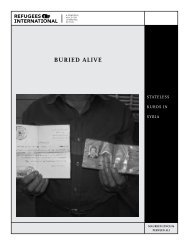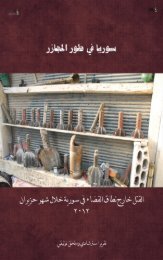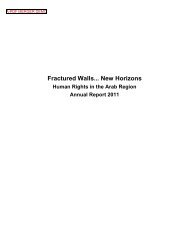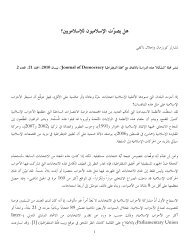Far From Justice - Human Rights Watch
Far From Justice - Human Rights Watch
Far From Justice - Human Rights Watch
- No tags were found...
Create successful ePaper yourself
Turn your PDF publications into a flip-book with our unique Google optimized e-Paper software.
I. SummaryIt is not really a judicial process. It is a political process, and you’resentenced if your political thinking is wrong.—Western diplomat who regularly attends SSSC trials, April 2008. 1Forty years after its creation, the Supreme State Security Court (SSSC) remains one of thepillars of repression in Syria. An offspring of the state of emergency that the Syrianauthorities declared on March 8, 1963, the government created the SSSC to prosecute thoseit deemed a threat to state security. In practice, the SSSC’s role has been to prosecute thosewhom the Syrian authorities do not approve of in trials that lack basic due processguarantees. The SSSC consistently ignores claims by defendants that their confessions wereextracted under torture and frequently convicts them on vague and overbroad offenses thatessentially criminalize freedom of expression and association.Since 1992, the SSSC has tried thousands of people. With time, as the government’sperceived enemies have changed, so has the profile of the defendants. During the 1990s,the SSSC’s favorite targets were communists, pan-Arab Nasserites, Iraqi Ba`athists, humanrights activists, and Muslim Brotherhood members. Today, most of the defendants aresuspected Islamists, often accused of being salafis (adherents to fundamentalist Islamicthought) or wanting to fight in Iraq, Kurdish activists demanding increased autonomy andcultural recognition, and independent activists who criticize the regime.Amongst those recently tried by the SSSC are bloggers who posted articles critical of theauthorities, a Kurdish university student who filmed the violent dispersal by the police of apeaceful demonstration of Kurdish children in 2003, and a member of the MuslimBrotherhood who returned from exile to Syria.In preparing this report, <strong>Human</strong> <strong>Rights</strong> <strong>Watch</strong> compiled information about 237 cases,representing all of those known to have been decided by the SSSC between January 2007and June 2008 (Annex I lists these cases). The SSSC suspended its operations in July 2008,following a riot that broke out in Sednaya prison, located about 30 kilometers north ofDamascus, controlled by the military which holds the vast majority of the SSSC defendants.1 <strong>Human</strong> <strong>Rights</strong> <strong>Watch</strong> interview with Damascus-based Western diplomat C.D., Beirut, April 14, 2008.1 <strong>Human</strong> <strong>Rights</strong> <strong>Watch</strong> February 2009


